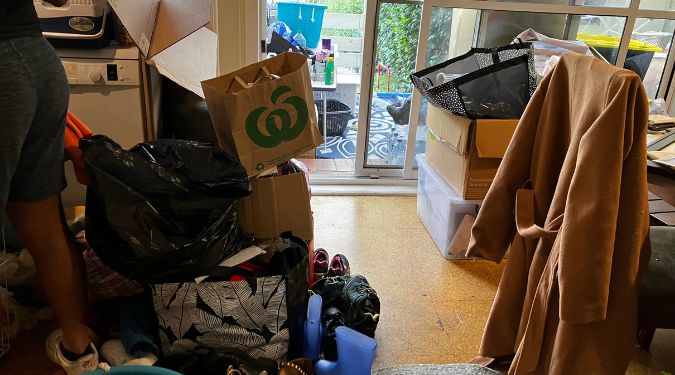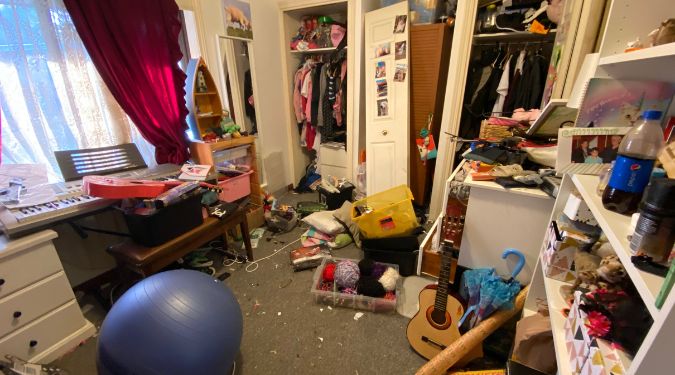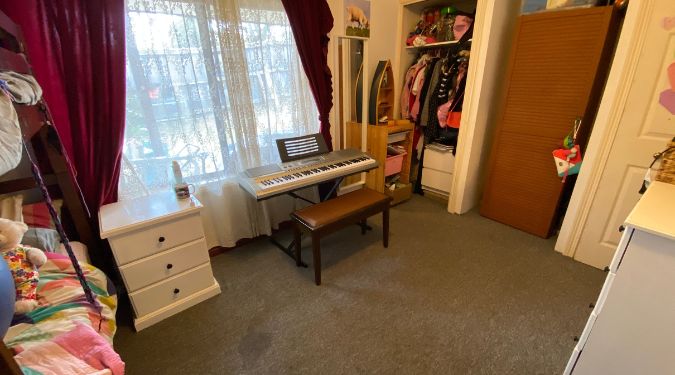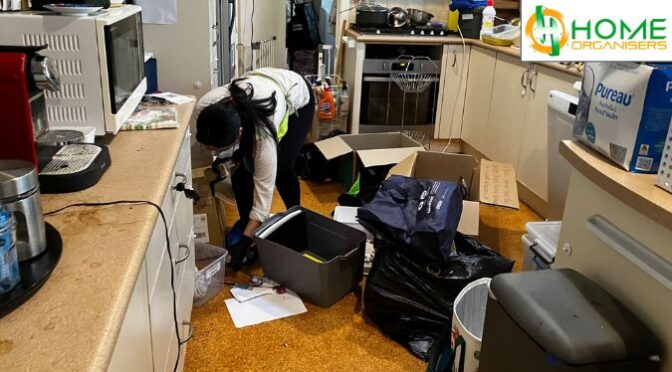Keeping a home clean and organised isn’t always easy, especially if you’re dealing with disability, mental health conditions, or limited mobility. For many NDIS participants, a home that feels safe, calm, and easy to navigate can make a significant difference in their daily lives.
Two services that are often recommended under NDIS cleaning services are deep cleaning and decluttering. While they sound similar, they’re pretty different, and each one has its purpose. In many cases, using both together can make the most significant impact.
Let’s explore what each service does, how they support your health and wellbeing, and when it’s time to use both.
What Is Deep Cleaning?
Deep cleaning is more than just vacuuming the floors or wiping down the kitchen bench. It’s a thorough, detailed clean that targets areas of the home that are often overlooked in regular cleaning.
Deep cleaning can include:
- Scrubbing mould and mildew from tiles and grout
- Disinfecting bathrooms and kitchens
- Cleaning behind and under furniture
- Removing built-up dust and grime
- Sanitising high-touch surfaces like door handles, light switches, and remote controls
- Cleaning windows, skirting boards, and vents
- Treating smells and stains
This level of cleaning helps remove germs, allergens, and bacteria that can affect your health. For people with asthma, allergies, or low immunity, deep cleaning can be an essential part of staying well, especially in deep clean hoarding situations where built-up clutter has made regular cleaning difficult.

What Is Decluttering?
Decluttering is about making your home more organised by sorting, reducing, and arranging your belongings. A professional organiser helps you go through your belongings, decide what to keep, donate, or discard, and find the best way to store what remains.
Decluttering can involve:
- Organising cupboards, drawers, wardrobes, and pantries
- Creating easy-to-use systems for clothes, paperwork, and essentials
- Removing broken, unused, or expired items
- Helping with hoarding behaviours in a kind, non-judgmental way
- Setting up clear and safe walkways in the home
- Supporting you to let go of items that no longer serve you
Decluttering isn’t just about making things look neat; it’s also about creating a more organised and efficient space. It’s about making your home easier and safer to live in, especially if you use mobility aids, live with anxiety, or find it hard to make decisions due to cognitive load or overwhelm.
The Key Differences
Here’s a simple way to understand the difference:
- Decluttering deals with stuff.
- Deep cleaning deals with dirt.
One clears space, the other clears germs. Both work together to create a fresh, safe, and calm home environment.
Why You Might Need Both
Often, decluttering and deep cleaning go hand in hand.
Imagine trying to clean your kitchen benches, but they’re covered in old papers, unused appliances, and unopened mail. A deep clean can’t be done properly if clutter is in the way. On the other hand, once the clutter is cleared, a deep clean can transform the space and make it feel new again.
Combining both services can:
- Improve access for carers or support workers
- Reduce the risks of slips, trips, or falls.
- Create space for medical equipment.
- Help prepare the home for NDIS cleaning services reviews or audits.
- Reduce emotional stress and mental fatigue.
- Make ongoing cleaning easier and faster.

The Health Benefits
A clean, clutter-free home isn’t just about looks. It supports your physical and mental health in real ways.
Physical Health:
- Removes mould, dust mites, and bacteria that can trigger illness
- Reduces the risk of respiratory issues, especially for those with asthma
- Prevents pests and infestations
- Reduces fall risks from blocked walkways or slippery surfaces
Mental and Emotional Health:
- Clutter can create anxiety and make you feel overwhelmed
- A clean, calm space helps improve focus and peace of mind.
- You may sleep better in a cleaner environment.
- Feeling in control of your space can boost confidence and motivation.
- A sense of pride and dignity can return to the home.
Impact on Mood and Productivity
When your home feels clean and organised, your mind does too. Many clients report feeling lighter, calmer, and more in control after decluttering and deep cleaning. This can lead to:
- Better decision-making
- Increased energy levels
- More time and focus on hobbies or family
- Feeling more confident in inviting guests or support workers into the home
Support for Families and Carers
If you have family members, caregivers, or support workers helping you at home, decluttering and deep cleaning can also make their job easier. A well-organised space means:
- Less time spent searching for items
- Easier meal prep, medication routines, and personal care
- Fewer arguments or stress about the mess
- More time for meaningful connection instead of cleaning tasks
It can also help reduce tension or guilt that family members might feel when they see a loved one struggling to manage at home.
Long-Term Benefits: Time, Money, and Wellbeing
Investing in deep cleaning and decluttering services can save time and money in the long run. Here’s how:
- Reduced medical costs from allergies or accidents
- Less spending on replacing lost or broken items
- No need to “start over” if things get too out of control
- Easier and faster day-to-day cleaning
- Improved independence, which may reduce the need for extra support
It’s also easier to maintain and enjoy your home when everything has its place and is free from built-up dirt. These services support your functional capacity home — helping you live more independently and safely in your own space.

When Should You Book Both?
You might need both services if:
- You’re feeling overwhelmed by your living space
- You’ve experienced a significant life change (such as illness, injury, or loss)
- You’re preparing for a support worker to begin visiting.
- Your space has become unsafe or difficult to navigate.
- You’re looking for a fresh start or need help getting back on track.
You don’t need to do it all at once. At Home Organisers, we often create tailored plans to work with you at your pace — whether that’s over a single day or across several weeks.
Final Thoughts
Decluttering and deep cleaning are not just chores — they’re powerful tools that support independence, dignity, and quality of life. For NDIS participants, these services can be life-changing.
By understanding the difference and knowing when to use both, you can create a living space that feels more like home. A home that’s not just tidy or clean, but calm, welcoming, and full of possibility.
Ready to transform your home into a clean, safe, and stress-free space? Call us on 03 8583 9103, email nancy@homeorganisers.com.au, or visit homeorganisers.com.au to get started today.
FAQs NDIS DEEP CLEANING VS DECLUTTERING
- 1. What is the difference between NDIS deep cleaning and decluttering services?
NDIS deep cleaning focuses on removing dirt, bacteria, mould, and allergens from the home, especially in high-risk or hard-to-reach areas. Decluttering, on the other hand, is about organising and reducing excess belongings to create a safer, more functional living space. One cleans the environment; the other organises it.
- 2. How can NDIS deep cleaning help improve my health and living conditions?
NDIS deep cleaning services remove harmful bacteria, dust, and mould, which can trigger allergies, asthma, or other health issues. A thoroughly cleaned space reduces fall risks, improves hygiene, and creates a healthier and more pleasant environment to live in.
- 3. When should I book both decluttering and deep cleaning under my NDIS plan?
You should consider booking both services when your home has become difficult to manage, unsafe, or overwhelming. Combining deep cleaning and decluttering is especially helpful if you’ve experienced a health change, hoarding behaviours, or just need a fresh, supportive start at home.
- 4. Can Home Organisers help with deep clean hoarding situations through NDIS?
Yes. Home Organisers specialises in deep clean hoarding support under NDIS cleaning services. We work gently, without judgment, and help restore your space with compassion and care, while respecting your choices and pace.
- 5. Is decluttering covered under NDIS home cleaning services for participants with mental health conditions?
Yes. If clutter is affecting your daily function, safety, or wellbeing, decluttering may be included in your NDIS plan under support categories like “Assistance with Daily Living” or “Improved Living Arrangements.” It’s especially relevant for participants living with anxiety, depression, or hoarding behaviours.
- 6. How do deep cleaning and decluttering support a functional capacity home?
A functional capacity home is one that supports your ability to live safely and independently. Decluttering improves mobility, reduces confusion, and removes hazards, while deep cleaning ensures the space is hygienic and healthy. Together, they make everyday living easier and safer.
- 7. What does a typical NDIS-approved decluttering and deep clean service include?
It usually includes sorting and organising belongings, removing rubbish, creating storage solutions, and thoroughly cleaning key areas like kitchens, bathrooms, and living spaces. Services are personalised to your goals and may involve one-off sessions or ongoing support.
- 8. How does a clean and organised home improve mental and emotional wellbeing for NDIS participants?
A clutter-free, clean space reduces stress, anxiety, and decision fatigue. It can improve mood, support better sleep, and create a calming, predictable environment. Many clients feel more motivated, independent, and confident after deep cleaning and decluttering.
- 9. Can Home Organisers tailor NDIS cleaning services to suit my physical and cognitive needs?
Absolutely. Every service is personalised. We consider your mobility, mental health, support requirements, and preferences. Whether you need help with physical tasks, decision-making, or setting up easy-to-maintain systems, we adjust to meet your needs.
- 10. How often should NDIS participants schedule professional deep cleaning and decluttering?
It depends on your situation. Some clients need a one-time reset; others benefit from regular support — weekly, monthly, or quarterly. If your NDIS plan allows, we can help you set up a routine that supports ongoing safety and independence.



